Definition:
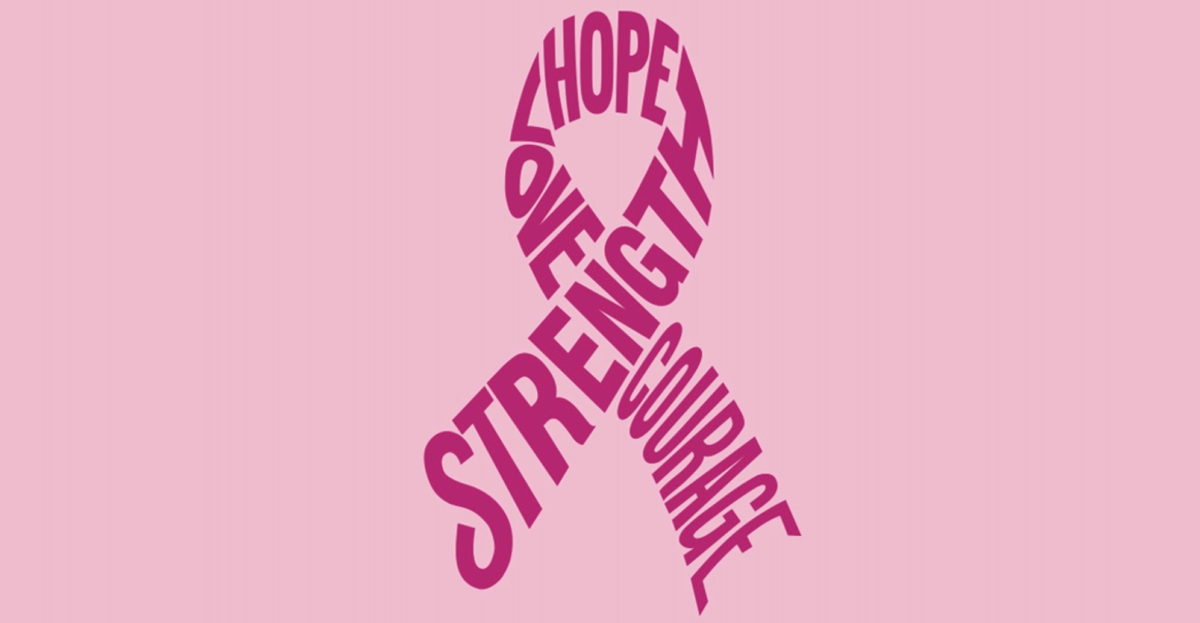
Pinkwashing is a term used to describe a variety of marketing and political strategies aimed at promoting products, countries, people or entities to LGBTQ+ people or using LGBTQ+ related labels in order to be perceived as progressive, modern and tolerant.
Derivatives: Pinkwasher (noun)
A company or organization that claims to care about breast cancer by promoting a pink ribbon product, but at the same time produces, manufactures and/or sells products containing chemicals that are linked to the disease.
History/Background:
Deriving from the seventeenth century verb “whitewash”, which is defined as an attempt to conceal or dilute unpleasant facts like crimes and vices, pinkwashing is first credited in 2002 to Breast Cancer Action, an organization that aimed to combat breast cancer at the intersections of social and environmental justice. Before it was first officially credited, the Nazis forced gay male concentration camp inmates to wear inverted pink triangles to shame them for their “inverse” gender identification. Subsequently, in the LGBT activist ACT-UP movement, the pink triangle was repurposed to symbolize political resistance to homophobia and the plight of HIV+ people and those living with AIDS. In the 1980s, the iconic pink ribbon logo became a form of so-called “cause marketing” that companies used to advertise their support for breast cancer survivors, victims, and charities. Thus, in 2002, pinkwashing was used to first condemn public awareness campaigns underwritten by foundations and corporations that profited from pink colored products at the expense of women whose lives they professed to champion. The Breast Cancer Action had started Think Before You Pink campaign as an impassioned feminist protest against the indiscriminate and disingenuous abuse of pink ribbon logos to turn profits and, according to Cary Nelson, “hide the ways they are actually contributing to cancer through their manufacturing processes”.
In recent years the definition has expanded to include critiquing any companies or brands using pink merits to promote a particular corporate or political agenda. It now commonly refers to the appropriation of the LGBTQ+ movement that entities market themselves as “gay-friendly” to gain favor with progressives, while masking aspects that are violent and undemocratic.

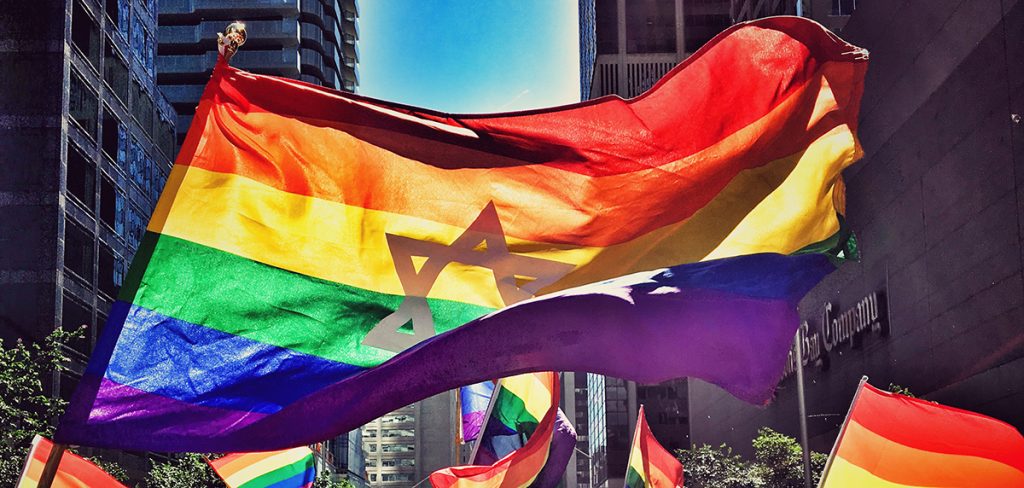
Examples:
Known from the historical progress of “pinkwashing”, the word is most commonly in use in three areas today – Breast Cancer Prevention Movement, Corporate Promotion and Israeli-Palestinian Conflict.
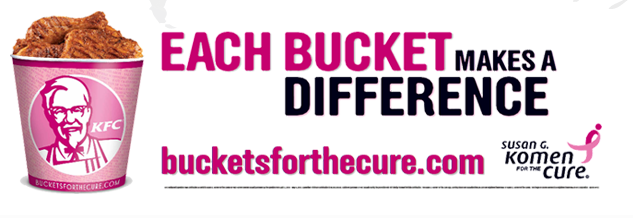
Breast Cancer Prevention Movement
Activists of breast cancer prevention use pinkwashing to refer to any company or organization that exploits breast cancer for profit. One of the most well-known examples is they criticized the Susan Komen Foundation and its corporate sponsors including Kentucky Fried Chicken and Coca-Cola as examples for monetizing breast cancer through the foundation’s trademarked “pink ribbon” campaigns. KFC teamed up with Susan G. Komen selling pink buckets of chicken. Saturated fat can lead to cancer and that high fat consumption in teen girls increases the risk of breast cancer.
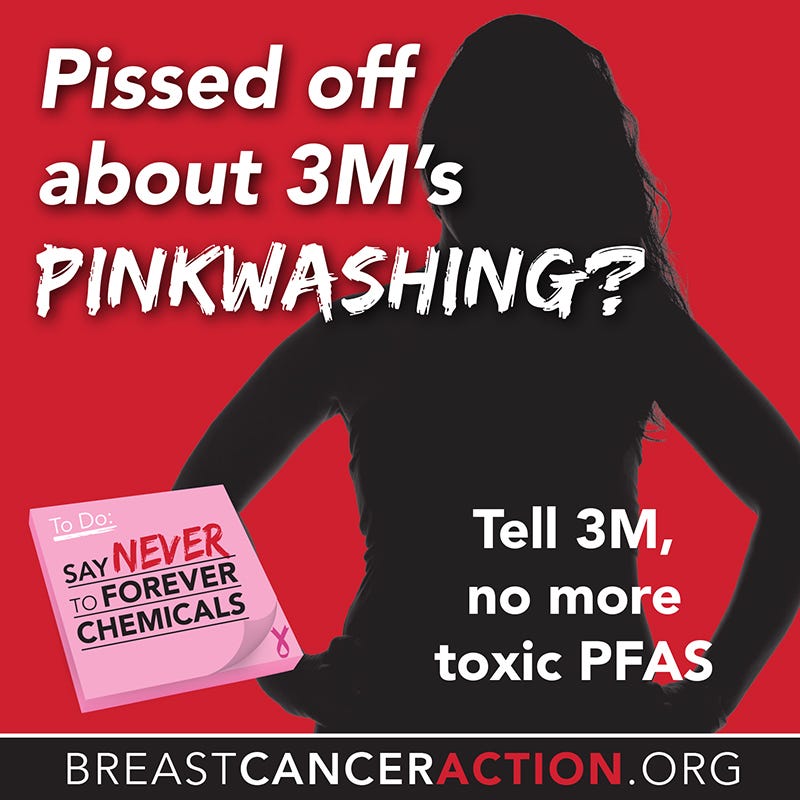
More directly, the activists also targeted pinkwashing companies such as 3M, whose manufacturing of pink colored products increased risks for cancer, with lawsuits. In 2004, 3M’s Annual Report acknowledged its $300,000 donation to a cancer research center followed by a $500,000 expenditure for a “pink ribbon” campaign that boosted its sales of Post-it Notes by 80%. Then, in 2017, the State of Minnesota sued 3M, alleging that “in pursuit of profit,” the company “deliberately disregarded the substantial risk of injury to the people and environment of Minnesota from its continued manufacture of PFCs and its improper disposal.” In the following year, the parties reached a $850 million-dollar settlement to help eradicate these cancer-causing chemicals.
Corporate Promotion
Pinkwashing is also used to criticize the strategies in promotion of gay-friendliness in corporate or political entities. Brands or political parties usually use pinkwashing merits such as declaring to be an LGBTQ+ ally or using communication strategies to stand by LGBTQ community in pride month for promotion. However, companies attract criticism when they run related image campaigns, while at the same time doing business that contradicts those campaigns, for example operating in countries where homosexuality is a punishable offense. An noticeable example is the automotive group Daimler’s “Mercedes-Benz Pride” campaign, which turned its logo – the famous Mercedes star – into a rainbow-colored one on social media. That did not go down well at all with some members of the LGBTQ+ community. The visual statement definitely met with approval from some users, but others thought that the logo change was merely symbolic and the message in the statement was inconsistent with Daimler’s actual actions.
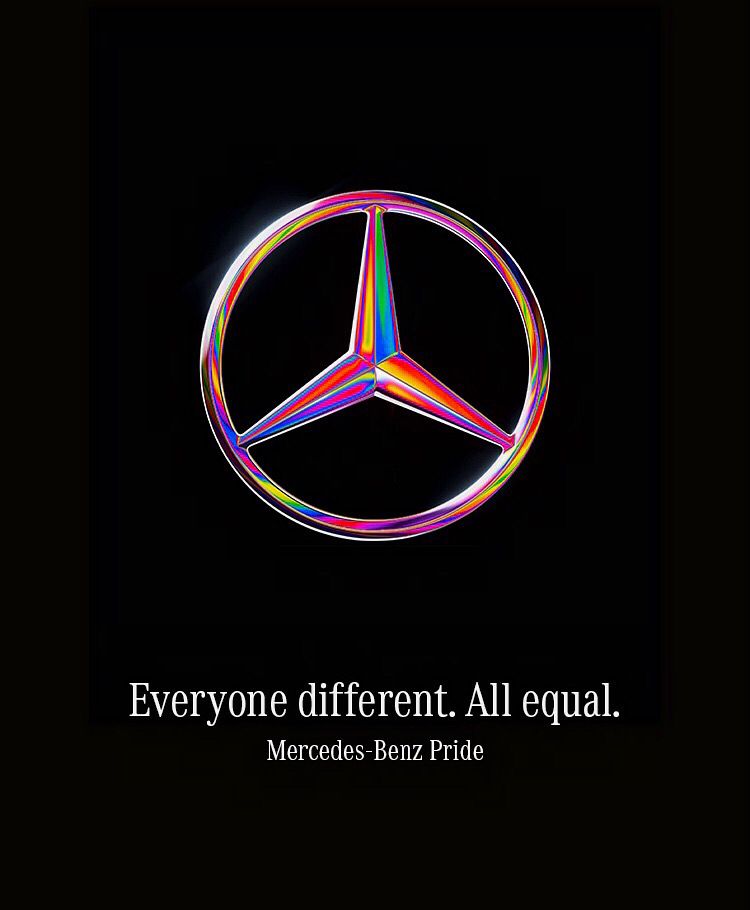
Moreover, the Munich-based automotive group BMW ran a campaign similar to Daimler’s: it turned the logo of its Instagram account into rainbow colors to express its solidarity with LGBTQ+ people. That backfired though when it was accused of pinkwashing for changing the logo in Germany and other countries that embrace gender and sexual freedom but failing to do the same in far less tolerant countries such as Russia and Saudi Arabia.
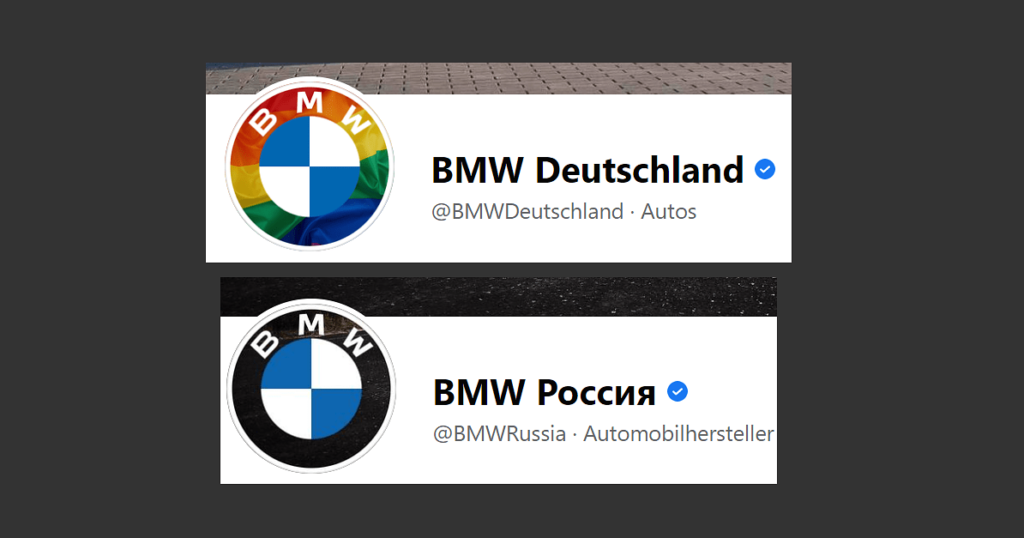
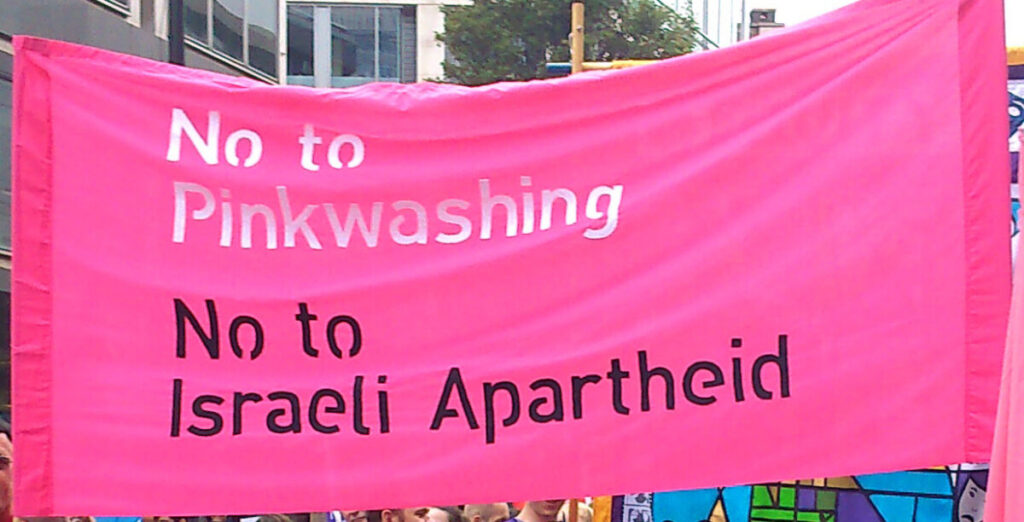
Israeli-Palestinian Conflict
When used in relation to the Israel-Palestinian Conflict, pinkwashing is used by anti-Israel activists who accuse Israel of being guilty of using pinkwashing to cover up actions against Palestinians. They charged Israel’ strategy to deflect attention from what they argue is Israel’s persecution of the Palestinians. Such charges further imply that these seemingly admirable characteristics of Israeli society are somehow shallow or manufactured by the Israeli government in a deliberate attempt to cover up its policies towards Palestinians – accusations that can be seen to leverage age-old stereotypes of Jews as deceitful behind seemingly beneficent behavior.

Israel has an undeniably strong record of freedoms and protections for LGBTQ+ people, allowing same-sex marriages, joint adoption, and open military services. Indeed, one can recognize these attributes and contributions without diminishing, ignoring or “washing” concerns or criticisms related to Israel-Palestinian conflict and Israeli policies towards Palestinians.
Speculations & Lessons Learnt From the Word:
Pinkwashing shows how false advertising and research revealed that many products sold by companies contained carcinogenic ingredients linked with the increased risk of breast and other forms of cancer. In addition, the focus on prevention, and “the cure” ignored environmental factors and the fact that poor women of color suffered disproportionately from breast cancer. Therefore, the word teaches people loving the color pink and believing awareness, action and research are incredibly important in this topic. As Think Before You Pink, the project that Breast Cancer Action launched in 2002 in response to the growing concern about the number of pink ribbon products on the market, people can campaign calls for more transparency and accountability by companies that take part in breast cancer fundraising and encourage consumers to ask critical questions about pink promotions. This is also why we need to learn about the meaning of “pinkwashing”, to achieve health justice for all women at risk of and living with breast cancer, to arise awareness for all consumers under the false advertising and marketing strategies, and to appeal for more attention on the Israeli-Palestinian Conflict as a whole.
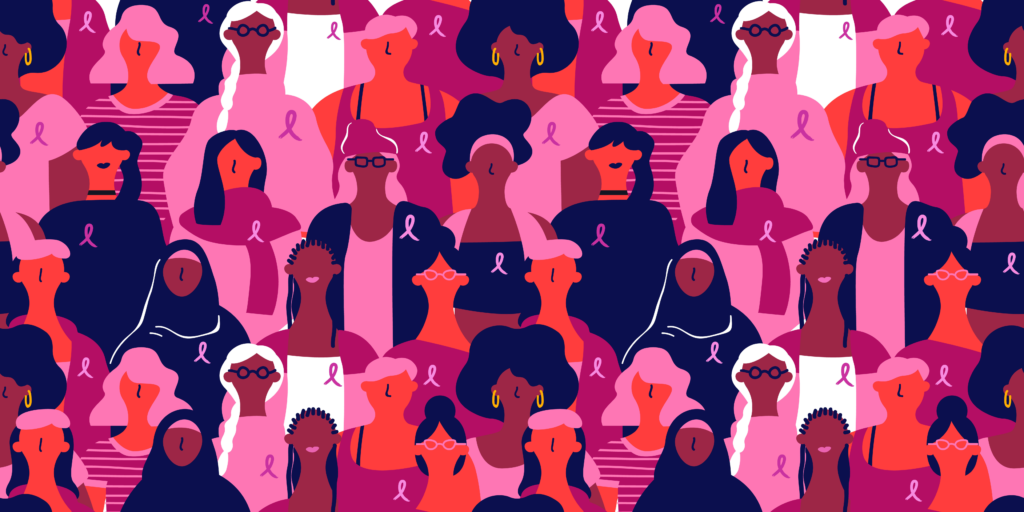
On the other hand, for the marketers, claiming the companies are tolerant, yet failing to consistently put those words into action is unacceptable for many people. Exaggerated and stereotypical portrayals of alternatively oriented people can also spark outrage. Marketers therefore need a lot of tact when developing campaigns that aim to show solidarity with lesbian, gay, queer, and other groups. It is an incredibly sensitive subject that needs to be thoughtfully addressed.
Works Cited
“Allegation: Israel Is Guilty of ‘Pinkwashing’ (and Other Washing) to Cover up Actions against Palestinians.” ADL, 18 May 2022, www.adl.org/resources/backgrounder/allegation-israel-guilty-pinkwashing-and-other-washing-cover-actions-against.
Blackmer, Corinne E. “Pinkwashing.” Israel Studies, vol. 24, no. 2, 2019, pp. 171–81. JSTOR, https://doi.org/10.2979/israelstudies.24.2.14. Accessed 13 Oct. 2023.
Drucker, Peter. “Homonationalism & Queer Resistance.” Against the Current, vol. 31, no. 182, May 2016, pp. 23–26. EBSCOhost, search.ebscohost.com/login.aspx?direct=true&db=a9h&AN=115387533&site=ehost-live&scope=site.
Sen, Tapti. “Combating Corporate ‘pinkwashing’ during Pride Month with Mutual Aid.” Inequality.Org, 11 July 2022, inequality.org/great-divide/corporate-pride-pinkwashing/.
Shafie, Ghadir, and Karma R. Chávez. “‘Pinkwashing and the Boycott, Divestment, and Sanctions Campaign,’ May 25, 2016.” Journal of Civil and Human Rights, vol. 5/5, 2019, pp. 32–48. JSTOR, https://doi.org/10.5406/jcivihumarigh.2019.0032. Accessed 14 Oct. 2023.
Ward, Diana, et al. “Pinkwashing and the Breast Cancer Prevention Movement.” Women & Environments International Magazine, no. 96/97, Summer/Fall2016 2016, pp. 18–22. EBSCOhost, search.ebscohost.com/login.aspx?direct=true&db=a9h&AN=120949783&site=ehost-live&scope=site.
